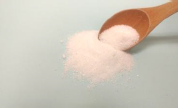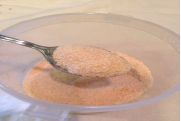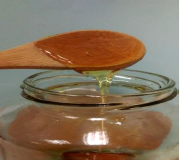The Sugar Myth
Sugar is a simple form of carbohydrate. 1 gram of sugar can provide 4 kcal of energy. Amongst all sugars, glucose is the most readily available form of energy for the brain. In a balanced diet, we can consume sugar in moderation. Yet, our sugar intake should be no more than 10% of our daily energy intake. For instance, based on a 2000 kcal adult diet, his or her daily sugar intake should be less than 50 grams, which is approximately 10 teaspoons of sugar.
Nevertheless, when we talk about sugar, the general rule is to limit sugar consumption since excessive intake of sugar may lead to health problems such as weight gain and an increased risk of tooth decay. Considering the limitation on daily sugar intake, are there any “healthier” sugar products in the market?
- Granulated Sugar

Granulated sugar is the most frequently used sugar. It is extracted from sugar canes, refined, and purified in order to produce highly purified granulated sugar. Granulated sugar is commonly added to food, including candies, cakes, pastries, juices, sodas, etc. As white sugar has undergone a refining process, every 100 grams of it contains over 99% of sucrose, with only traces of minerals left .
- Brown Sugar

Same as granulated sugar, brown sugar is extracted from sugar canes. As brown sugar is less refined than granulated sugar, it retains a greater amount of original ingredients from sugar canes. In this regard, brown sugar contains more calcium, potassium and iron than granulated sugar 2. However, these minerals could be easily obtained from our daily diet. Thus, we do not have to rely on brown sugar to meet our mineral requirements. Regardless of whether it is brown or granulated sugar, each gram contains 4 kcal of energy. Therefore, over-eating either kind of sugar will still lead to excessive energy intake, which may increase the risk of obesity.
- Honey

Honey is the syrup made by bees from flower nectar, and stored in honeycombs. Each gram of honey contains 3 kcal of energy, trace amount of vitamins, minerals, and amino acids. Since honey contains more water than granulated and brown sugar, it has less energy per gram. However, compared to other sugars, we usually add a larger amount of honey to our food or drinks. Thus, we may easily take in too much energy if we don’t pay attention to the portion size.
- Sugar Substitutes
Sugar substitutes, also known as sweeteners, are generally added to sugar-free chewing gum, candies and diet coke. The sweet flavour of each kind of sweetener varies, but usually much sweeter than granulated sugar. When comparing between foods added with sweetener and sugar, the former contains fewer energy because the amount of sweetener used is less . Nonetheless, frequent intake of sweetener may cause indulgence in sweet foods. We should, therefore, avoid excessive intake of sweetener.
All in all, it is unwise to classify various kinds of sugar as healthy or not. No matter which kind of sugar we consume, it could lead to excessive energy intake or indulgence in sweet foods if we consumed too much sugar. Hence, the key point is portion control.
To know more about…
- healthy eating, please visit ‘Health Zone’ website at http://www.cheu.gov.hk
- ‘Health@work.hk Project’, please visit http://www.healthatwork.gov.hk
1World Health Organization
2USDA Food and Nutrient Database
3Centre for Food Safety
 Top
Top



